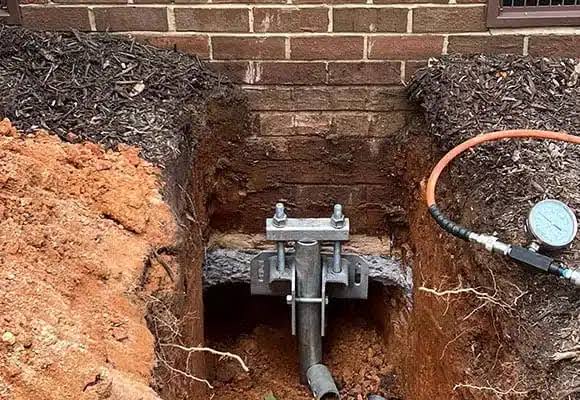When homeowners in Gastonia, North Carolina, face foundation problems, the cost of repairs can be significant. The structural integrity of your home is vital, and when the foundation starts to fail, it’s not something that can be ignored. Fortunately, there are several financing options for foundation repair in Gastonia North Carolina. These include loans, grants, and insurance claims, each offering different benefits depending on your situation. Knowing your alternatives might help you choose the best one for your needs and budget.
Foundation Repair Loans
One of the most common ways to finance foundation repair is through loans. There are a variety of loan options available to homeowners in Gastonia, with specific types designed to cover the costs of home repairs. Home equity loans and lines of credit are popular. These loans are secured by the equity in your home, meaning the value of the property above what you owe on your mortgage. The advantage of these loans is that they often offer lower interest rates because they are secured by your home.
Borrow a lump sum to pay for foundation repair using a home equity loan. On the other hand, a HELOC gives you a line of credit that you can draw from as needed, offering more flexibility in terms of how you use the funds. Keep in mind, however, that if you default on either of these loans, your home could be at risk.
Another loan option is a personal loan. Unlike home equity loans, personal loans are unsecured, meaning they don’t require collateral. Because of their increased risk, personal loans have higher interest rates than home equity loans, notwithstanding their attraction. Nevertheless, if you have good credit, a personal loan could still be an affordable way to cover foundation repair costs.
Government Grants For Foundation Repair
In some cases, homeowners in Gastonia may qualify for government grants or assistance programs to help cover the cost of foundation repair. The federal and state governments sometimes offer programs to help with home repairs, particularly for low-income individuals or seniors. These awards are need-based and non-repayable, making them appealing to eligible applicants.
For instance, HUD offers many programs to help homeowners with important repairs like foundation difficulties. One such program is the Section 504 Home Repair program, which is specifically designed to help low-income homeowners who are elderly or disabled. This program provides loans and grants to repair, improve, or modernize homes. The grant component can cover up to $10,000 for those who meet eligibility criteria, and the loan component offers up to $20,000 at a low interest rate for eligible applicants.
In addition to federal programs, the state of North Carolina may offer assistance through its own home repair programs. It’s a good idea to check with local agencies or non-profit organizations that provide grants or low-interest loans to eligible residents. These programs may vary from year to year, so it’s important to stay informed about any changes or new offerings.
Insurance Claims For Foundation Repair
Homeowners insurance might also help with foundation repair, but there are strict conditions. Foundation issues are typically not covered under a standard homeowners policy unless they are a result of something specifically covered by the insurance, such as a natural disaster. For example, if your foundation cracks due to flooding, some policies may cover the cost of repair. If the problem is caused by routine wear and tear, inadequate maintenance, or shifting soil, your insurance may not cover repairs.
In cases where insurance does cover the foundation repair, you will likely need to file a claim and provide evidence of the damage. It is also essential to review your policy or speak with an insurance agent before assuming that foundation problems will be covered. Insurance companies may also require that you use certain contractors or follow specific guidelines when filing a claim.
For homeowners who suspect that their foundation damage may be due to a covered event, it is important to document the damage thoroughly and get professional evaluations. An inspector or foundation repair specialist can help determine the cause of the damage and whether it falls within the scope of your insurance policy.
Choosing The Right Financing Option
Each of these financing options comes with its own set of advantages and challenges. Loans can be a good solution if you have sufficient equity in your home or strong credit, but they require repayment with interest. Grants are an excellent option if you qualify, as they don’t need to be paid back, but they may be limited in availability. Insurance claims can help cover repairs, but only under specific conditions, and they may require a lengthy claims process.
When deciding which option is best for financing your foundation repair in Gastonia, consider your financial situation, the urgency of the repair, and the available resources. If you have the ability to take on debt, a home equity loan or personal loan might be suitable. However, if you’re eligible for a grant, that could be the best route. Additionally, always check with your insurance provider to determine if your policy covers any part of the repair costs. Gastonia residents can fix foundation issues quickly and affordably by understanding their financing alternatives.

